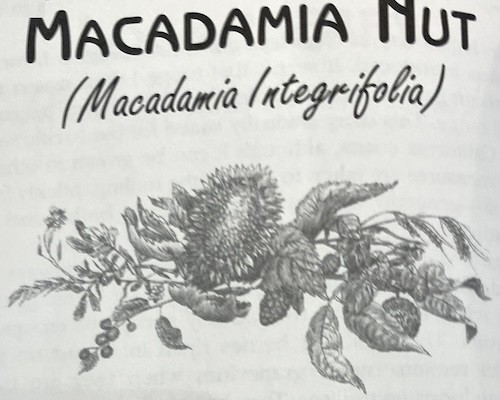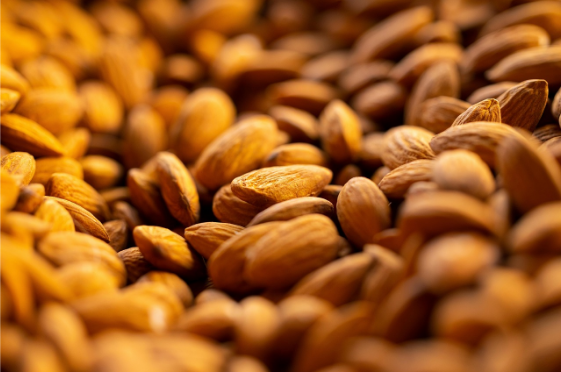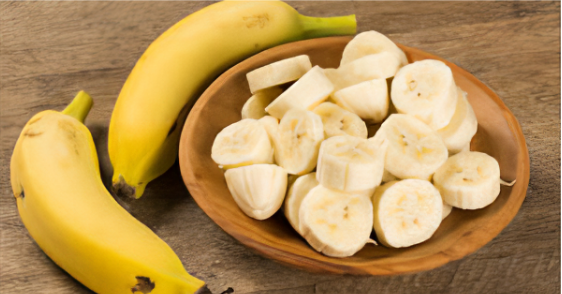Your cart is currently empty!
Medical Uses For Macadamia Nuts
The macadamia is an evergreen tree. Indigenous to the coastal, subtropical rain forests of southeast Queensland and northern New South Wales in eastern Australia. Before the middle of the nineteenth century, the nut was known only to aboriginal tribes, who, since prehistoric times, gathered the nuts each autumn. Their abundance meant never needing to cultivate the trees. Heaps of macadamia nut shells were found by the early white settlers in Australia near aboriginal feasting grounds. The Aborigines had several different common names, such as Gyndl, Kindal Kindal, Boombera, and Burrawang (not the city in Australia).
Short History Of The Macadamia Nut
The nut received its name from Baron Ferdinand Von Mueller, who has been called Australia’s foremost botanist. During the 1850s, he traveled incessantly, over 15,000 miles on foot and horseback, methodically collecting 45,000 Australian botanical specimens. In early 1857, he was in the “bush” near the Pine River in the Moreton Bay District of Queensland when he discovered an unfamiliar tree species. Consequently, he described it botanically for the first time. He named it Macadamia in honor of his good friend John Macadam, M.D.. At the time, he was secretary of the Philosophical Institute of Victoria. Ironically enough, Dr. Macadam never saw a macadamia tree nor tasted one of its nuts. He died at sea at age 37.
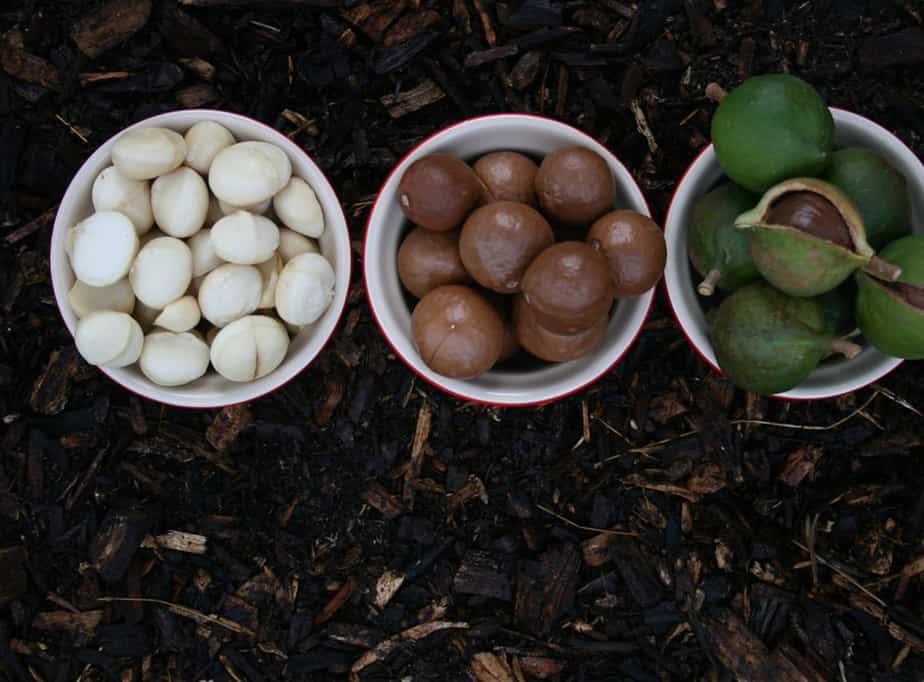
The edible nuts are produced by two species of the genus inches in diameter with a very hard, durable shell. Inside the shell is the kernel or macadamia nut, whose distinctive flavor has been compared to that of a super-fine filbert. I’ve sampled macadamias at one of the world’s largest macadamia plantations, beautifully situated on the slopes of Mauna Loa Volcano at Keaau, near Hilo on the Big Island of Hawaii. And I can tell from that enjoyable snacking experience that they have the most “luscious flavor” in the entire nut kingdom. With a taste of crunchy, yet delicate, with a distinctive light oil that fills the mouth.
At present, macadamia is considered a gourmet delicacy, ranking with pine nuts and pistachios as one of the world’s most expensive nuts.
Soothes Sunburn And Chapped Lips
Sunburn and chapped lips are common skin concerns that can leave you feeling uncomfortable and in search of quick and effective remedies. Macadamia oil is a natural and versatile option that can work wonders in alleviating these issues. Macadamia oil can soothe sunburn and chapped lips. Rich in essential fatty acids, antioxidants, and lipids, macadamia oil possesses numerous properties that make it an excellent choice.
Soothing Sunburn with Macadamia Oil
Sunburn can be painful and unsightly, often leaving your skin red, inflamed, and peeling. Macadamia oil offers several benefits for healing sunburns:
- Anti-Inflammatory Properties: The essential fatty acids, including oleic and palmitoleic acids, in macadamia oil have natural anti-inflammatory properties. These can help reduce redness and inflammation associated with sunburn.
- Antioxidant Protection: The oil is rich in antioxidants, which can aid in repairing and protecting damaged skin from UV radiation.
- Deep Moisturization: Macadamia oil is deeply moisturizing, helping to alleviate the dry and peeling skin that often accompanies sunburn. It restores the skin’s natural hydration.
Nurturing Chapped Lips with Macadamia Oil
Chapped lips can be a nagging discomfort, especially in harsh weather conditions. Macadamia oil can effectively address this issue:
- Emollient Properties: Macadamia oil is highly emollient, which means it can lock in moisture and prevent further dehydration of the lips.
- Gentle and Safe: The oil is well-tolerated and gentle on the skin, making it suitable for individuals with sensitive skin or lip conditions.
While macadamia oil can provide relief and hydration, it’s crucial to remember that prevention is the best strategy. Always use sunscreen to protect your skin from harmful UV rays, and don’t forget to wear protective clothing and accessories. If your sunburn is severe or persistent, it’s advisable to consult a healthcare professional for further guidance.
Macadamia Improves The Health of the Heart
Olive oil, which cardiovascular physicians agree benefits our health, is low in omega-6 fatty acids (8 percent). But macadamia nut oil is even lower (3 percent), while most other common vegetable oils such as corn, soy, and safflower have a much higher level-20 percent to over 50 percent. Even canola oil (second to olive oil at 58 percent monounsaturated), with a high omega-6 content of 26 percent, has only a 1 to 2.6 ratio of omega-3 to omega-6. Olive oil has a 1 to 8 ratio of omega-3 to omega-6 fatty acids. Alternatively, macadamia nut oil has a 1 to 1 ratio. For those concerned about the diet of the Western lifestyle, countering heart disease and high blood pressure. Hence, the medical uses for Macadamia nut oil include preventing heart disease, colon cancer, and arthritis.

A Potential Weight Loss Aid For Obesity
A preliminary study by scientists at the University of Hawaii in Honolulu discovered that macadamia nuts can improve fat metabolism. Roughly 400 subjects were measured for a variety of dietary conditions. It was discovered that those who abundantly consumed macadamia nuts lost more weight than other subjects placed on a limited weight loss diet. It is believed that these nuts “set” the “fat thermostat” (or “brown fat”) in each person a little higher so that consumed fat was oxidized or converted into energy instead of stored flab.
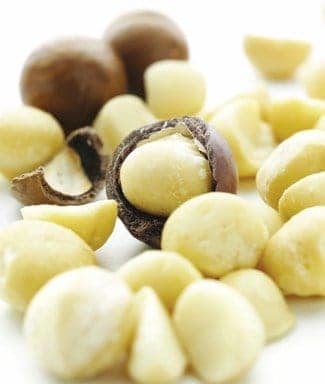
Macadamias, or nut oil, leaves a taste in the mouth and has a direct effect on obesity. Lining either side of the tongue are many tiny “taste buds,” which send chemical signals to the brain. Since fat tastes good, it has an appealing lure to the brain. Hence, the body craves more of it. By substituting healthful macadamia nut oil for other notorious weight-gaining fatty foods, the taste buds will respond with something that feels good and is flavorful. The septum pellucidum, the brain’s pleasure center located just above the limbic system, is immediately notified that something healthy is coming. This satisfies cravings one has developed for fatty foods.
Stores Longer And Cooks Better
Most oils, over time, become rancid. They reach a state of deterioration wherein they smell bad, taste bad, or both. Numerous tests with macadamia nut oil have repeatedly shown its long shelf life. Once a container comes in is opened, it can sit on shelves for months without going bad.
One important characteristic of good-quality cooking oil is its high smoking point. If the oil is intended for sautéing. But for this point to be reached, the oil must be highly refined. Once this is done, however, the oil’s free fatty acids, which account for its distinctive flavor, are greatly diminished.
Some oils, such as canola, have a high smoking point of 400°F is virtually tasteless at the level of refinement at which it’s sold commercially. Therefore, its use is merely to lubricate or coat the food surfaces. Extra virgin olive oil has a hearty, distinctive flavor and is highly desirable for certain dishes. It owes its flavor to its low level of refinement and its high retention of free fatty acids. However, this extra virgin olive oil’s smoke point is under 200°F. This means it will smoke quickly and is, therefore, quite unsuitable for cooking at higher temperatures.
But with macadamia nut, we find that its oil can be refined to a sufficiently high degree to achieve a favorably high smoking point (389°F) without sacrificing its appealing flavor. Some chefs regard macadamia nut oil as a unique nutty flavor. It is even enhanced at higher cooking temperatures.
